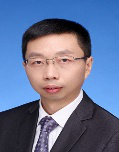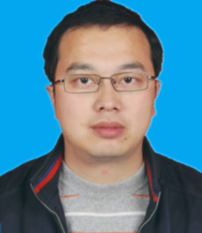Keynote Speakers (in 2025)

Prof. Xiuyin Zhang, South China University of Technology
IET FELLOW
Professor and Doctoral Supervisor at the School of Electronics and Information Technology, South China University of Technology. Vice Dean, recipient of the National Science Fund for Distinguished Young Scholars, Ministry of Education Young Changjiang Scholar, Fellow of the IET (UK), Senior Member of IEEE, and Vice Chair of IEEE Guangzhou Section. His research focuses on wireless energy transfer communications, intelligent RF signal processing, and antenna and RF systems. In 2015, he received the First Prize of the Guangdong Provincial Natural Science Award (as the first contributor). He has published over 110 SCI-indexed papers, including nearly 70 papers in top-tier or leading IEEE Transactions journals in the field. His work has been cited over 1,200 times in SCI, with three papers selected as ESI Highly Cited Papers. He holds 31 authorized Chinese invention patents and 4 U.S. patents. He has led nearly 20 national and provincial-level research projects and approximately 15 enterprise-commissioned projects from companies such as Huawei, with some research results successfully translated into industrial applications. Research Interests:Massive active MIMO antenna systems in 5G mobile communications, digital RF systems, RF circuits and systems, wireless power transfer/wireless energy transfer communications.

Prof. Xiaohu Tang Southwest Jiaotong University
IEEE FELLOW
Professor and Doctoral Supervisor at Southwest Jiaotong University. Selected for the National High-level Talents Program. In 2003, he received the National Excellent Doctoral Dissertation Award. In recent years, he has been awarded the Second Prize of the Ministry of Education’s Natural Science Award and has led multiple national and provincial-level research projects, including National Natural Science Foundation Key Projects and major projects of the Ministry of Education. He has published over 100 SCI-indexed papers in important international journals, including more than 50 papers in the flagship journal of the information theory field, IEEE Transactions on Information Theory.
He has made fundamental and systematic contributions in the field of coding theory: he pioneered the new field of low/zero correlation zone (LCZ/ZCZ) sequence design, and is one of the originators of the LCZ/ZCZ sequence concept, establishing a comprehensive theoretical framework. The theory named after him has become the internationally recognized standard for evaluating the performance of such sequences. Low/zero correlation zone sequences have now been incorporated into the global LTE standard.